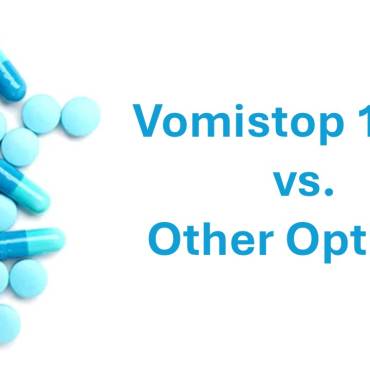An allergy is the reaction that the body develops from the exposure of a particular food or substance pertaining in the surrounding. The allergy symptoms occur depending on the type of allergen one is exposed to.
What is an allergy?
Allergy is the way in which an immune system reacts to things that do not cause any significant harm to most other people. Substances that instigate an allergic reaction are what we call Allergens. There are varied forms of allergens that include:
• Grass and tree pollen
• Dust mites
• Animal Dander
• Allergy through food
Allergy appears due to the body’s immune system’s reaction to an allergen considering it as a threat, like an infection. It produces antibodies to combat an allergen in a reaction called as the immune response. The next time when the person gets into contact with the allergen, the body recognizes the past exposure and produce more antibodies. All of this results in the release of the chemicals causing an allergic reaction. The allergic reaction symptoms vary and can range from moderate to severe.
Also Read: The Ultimate Allergy Survival Guide
Allergic reaction symptoms
The symptoms of allergy depend on the substance one is exposed to and may involve airways, sinuses, skin, digestive system, and nasal passages. In some cases, it can instigate a life-threatening reaction called as anaphylaxis. The allergic reaction symptoms of anaphylaxis may include: loss of consciousness, decrease in blood pressure, shortness of breath, nausea and skin rash.
Other allergy symptoms are as given below:
• Hay feveror allergic rhinitis may result in:
Sneezing
Itching at nose, eyes or a roof of the mouth
Runny and stuffy nose
Watery, reddened or swollen eyes
• Food allergy can cause:
Tingling mouth
Swelling of the lips, tongue, face or throat
Hives
Anaphylaxis
• An insect bite can cause:
A large area of swelling caused at the sting site
Itchiness all over your body
Cough, chest tightness, wheezing or breath shortening
Anaphylaxis
• Drug allergy can cause:
Hives
Itchy skin
Rash
Facial swelling
Wheezing
Anaphylaxis
• Atopic dermatitis, an allergic skin problem can cause:
Itch
Redness
Peel
Also Read: Skin Care Advice for Dry Skin During Winters
How can you treat your allergies?
To begin treatment for allergies, the foremost step is first to diagnose it. Start visiting your physician in case of an unusual or any allergic reaction symptoms. A general physician may offer the best advice and treat the allergies caused in the best possible way.
The best treatment for allergies is to know first the cause and allergen causing that reaction. The primary medical treatment for allergies includes taking medicines to ease its symptoms.
• Medication: Most of the allergy treatments can be available over the counter, but you must ask your physician before taking any drug.
• Antihistamines: Antihistamines can treat the allergic reaction symptoms in the way blocking the action of chemical histamines that are released by the body. It can be consumed in either in tablet, cream or liquid form depends on you.
• Decongestants: These aim to relieve a blocked nose that is commonly caused due to hay fever, pet allergy, and dust.
• Leukotriene receptor antagonist: These are the tablets blocking the effect of leukotrienes. Leukotrienes are those chemicals that are being released during an allergic reaction result in blocked airways or swelled. These treats the condition of asthma and acts as a supplement to steroid treatment.
• Steroid sprays: Corticosteroid sprays work on the nasal lining and airways. It is an efficient medicine that makes breathing via nose accessible.
• Immunotherapy: It is a course of vaccines that may last for three years. The primary aim of immunotherapy is to decrease the severity of allergicsymptoms.
Preventive measures:
To prevent any allergic reaction symptoms, you must avoid the allergen causing it. Allergens like house dust mites or fungal spores may breed even at the clean house. Pets are unavoidable too because they may belong to your best friend or relative. Given below is genuine tips to avoid common allergens.
• House dust mites: House dust mites are the major cause of allergies. You can limit them to your place by:
Using hard vinyl floor coverings and not carpets
Fitting roller blinds that can be easily wiped clean
Wiping surfaces using a damp cloth
Regularly clean your cushions, soft toys, curtains or upholstered furniture
• Pets: When you know there is no possible way to remove a pet from the house then you may try:
To keep pet stay outside as much as possible, or restrict them to one room
Do not let them enter into your bedroom
Washing pets at least once a fortnight
Regularly grooming dogs outside
Also Read: Pet Allergens and Asthma
• Mold spores: Mold may grow on decaying matter either in or out of the house. These can be prevented by:
Keeping your home well-ventilated and clean
Keeping doors closed during showering or cooking
Every allergic reaction occurs due to untidiness or substances taking place around you. So to prevent any further symptoms you must maintain hygiene and clean your surrounding.
Conclusion!
An allergy if, not treated on time may leave a significant impact on overall health of a person. It is advisable that one gives a regular visit to the doctor so that the allergic reaction symptoms do not spread much.


